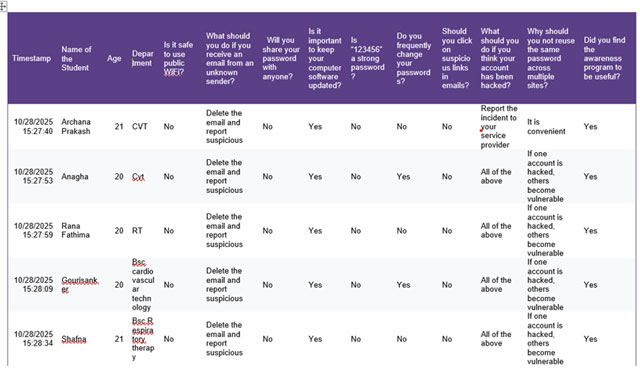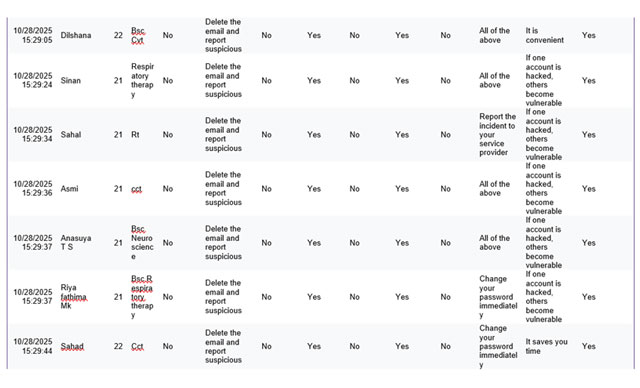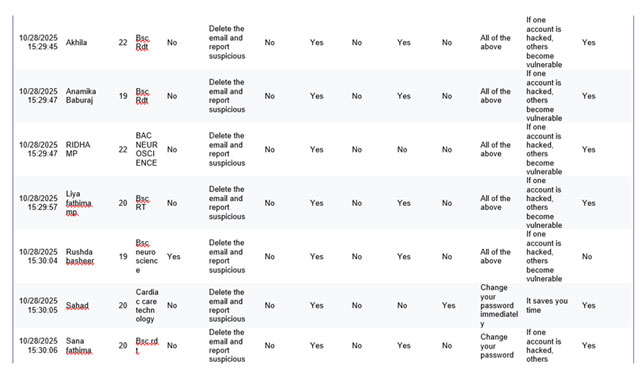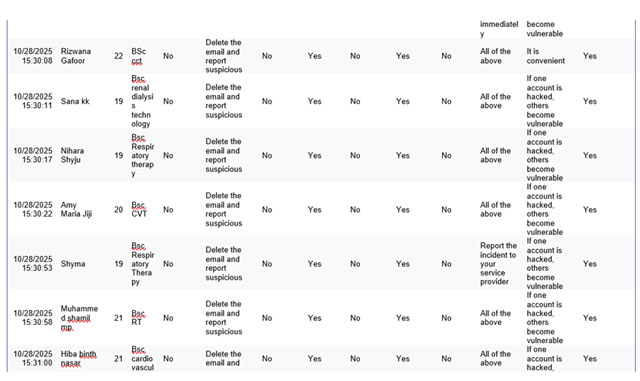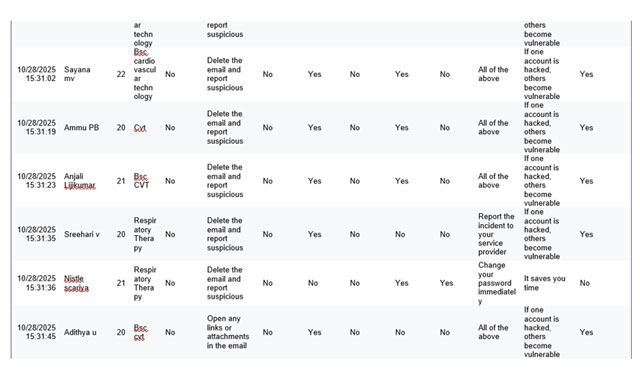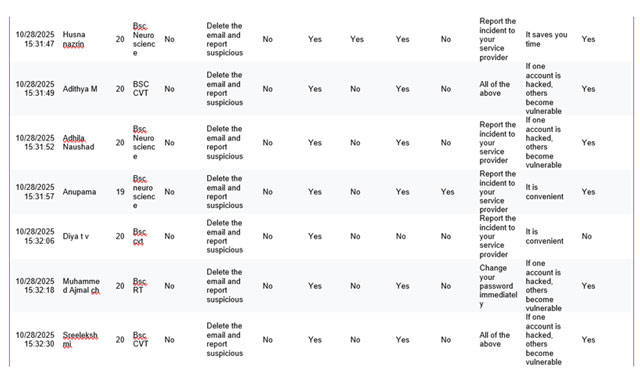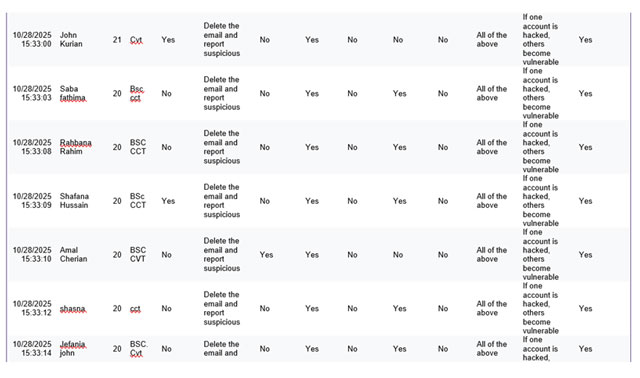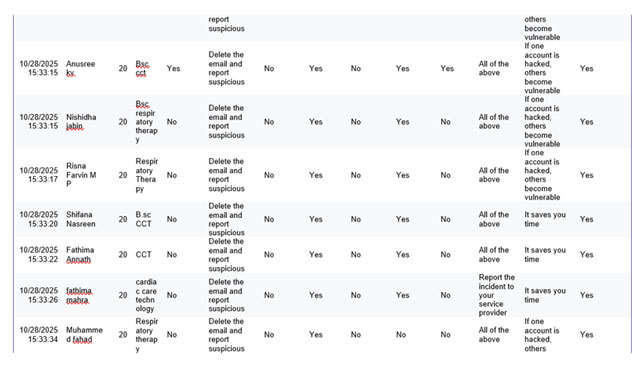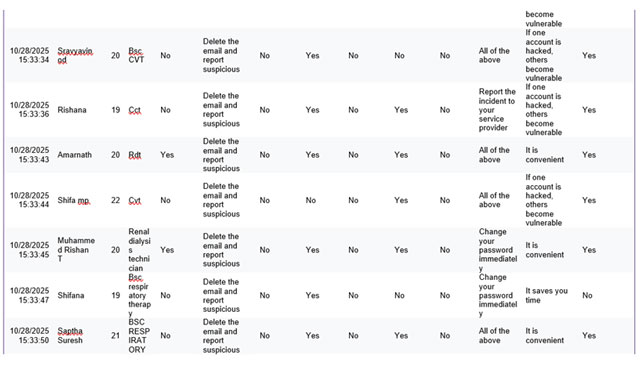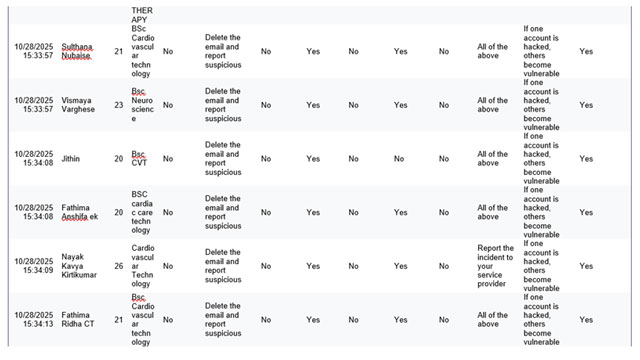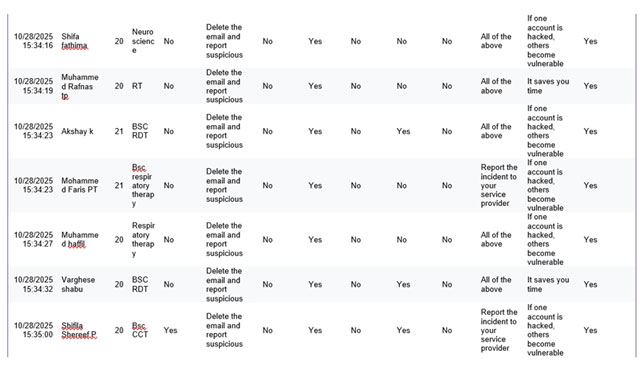Media Release
Mangaluru, Nov 11: The Institute of Allied Health Sciences, Srinivas University, organized a special awareness programme on the occasion of National Cyber Security Awareness Month 2025 titled 'Cyber Jagriti Bharat' on October 28. The event aimed to educate students about the growing threats of cybercrime and the importance of maintaining cybersecurity in the digital era.
Under the guidance of Prof Pavana Krishnamoorthy, dean and convener of the programme, the session emphasized the theme 'Don’t be the next victim – Stay alert, stay safe'. The programme highlighted real-world cybercrime incidents, preventive measures, and safe online practices to encourage participants to be responsible and vigilant digital citizens. The event took place in Engineering Block, Mukka Campus, Mangaluru, and served as an important initiative toward creating a cyber-aware and secure community.
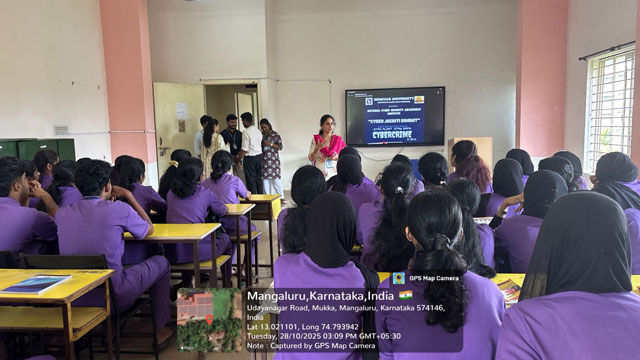
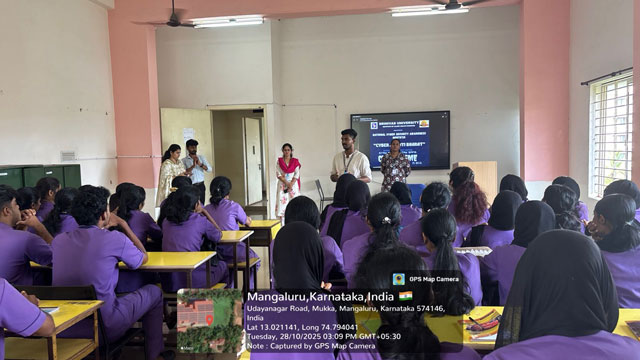
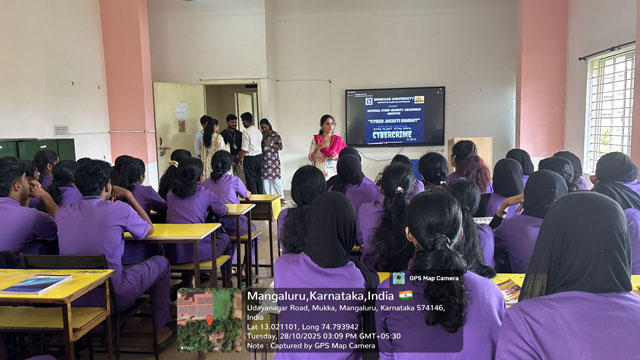
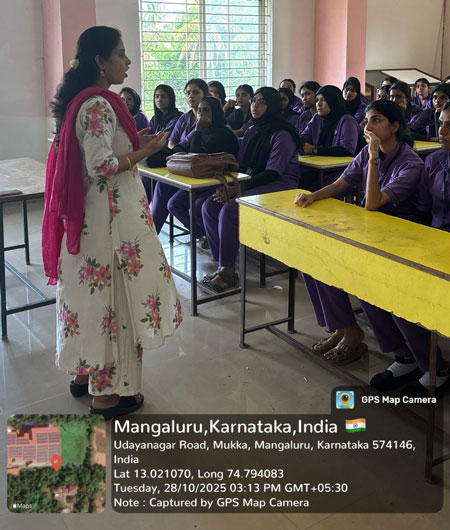
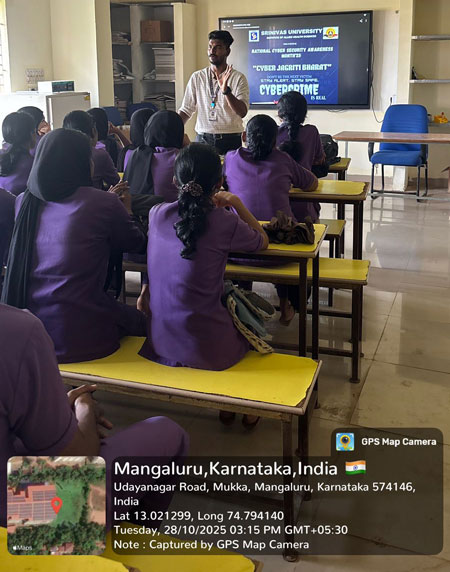
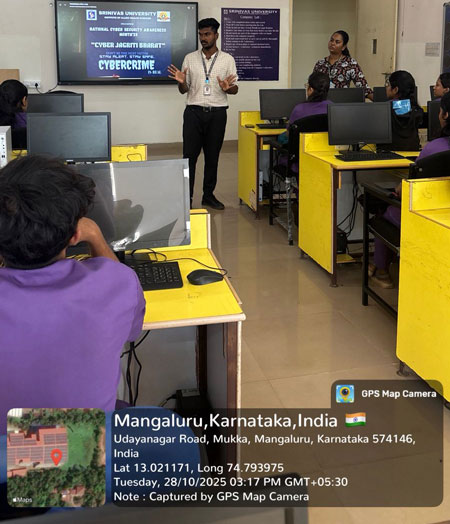
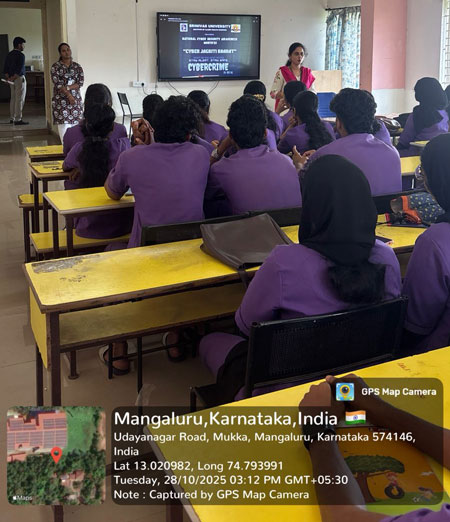
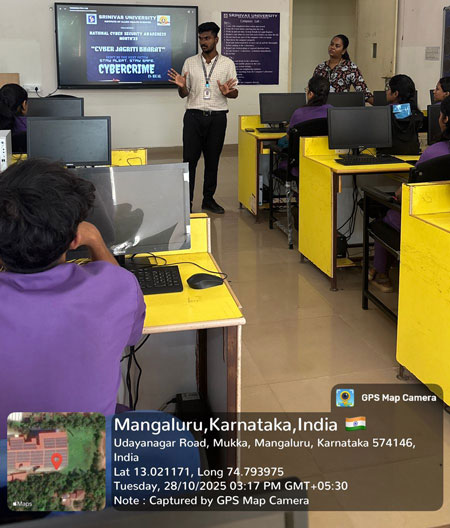
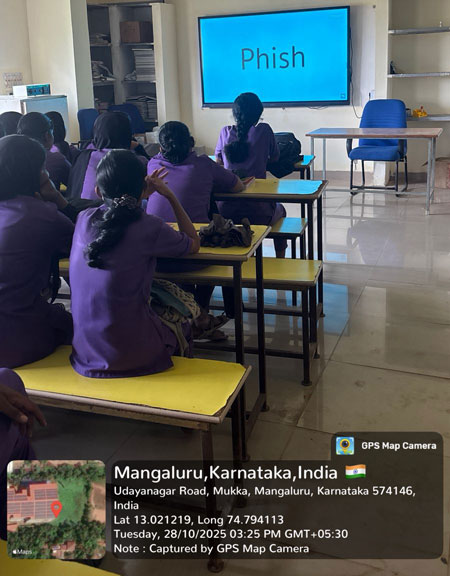
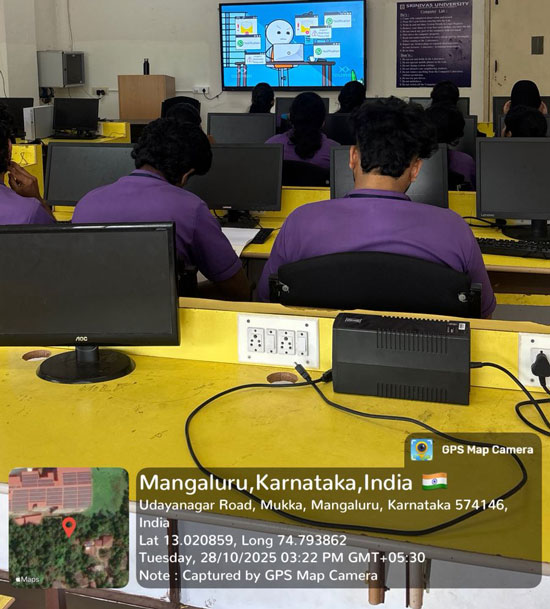
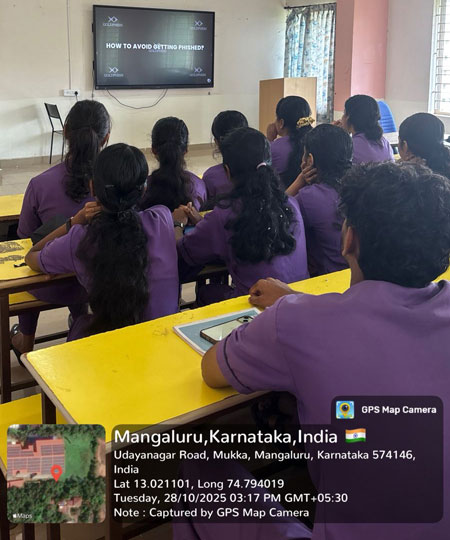
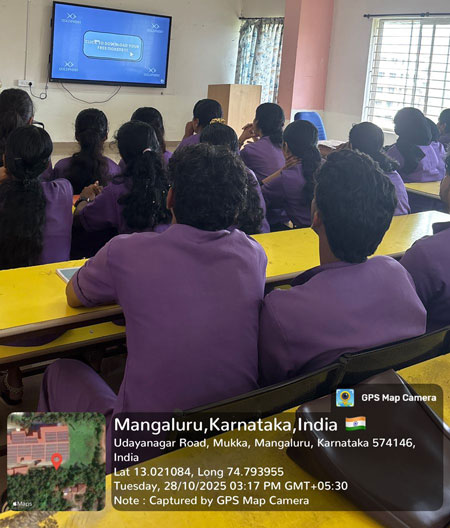
II Objectives of the programme
• To create awareness among students about various types of cyber threats, especially phishing attacks, and their real-world impact.
• To educate participants on the importance of cybersecurity practices in daily digital usage.
• To equip students with practical knowledge and preventive measures to safeguard their personal data and online identity.
III Highlights of the programme:
Organized under the theme “Cyber Jagrit Bharat” as part of National Cyber Security Awareness Month 2025. The session was led by Prof Pavana Krishnamoorthy, dean, IAHS, who emphasized the importance of staying alert and secure in the digital world. The event included an interactive awareness session, informative video presentation, and practical cybersecurity tips.
IV Key activities conducted:
• A demonstrative video was shown to participants illustrating how phishing attacks are executed and how unsuspecting users become victims.
• A guidance session followed, where students were educated on simple yet effective cybersecurity practices, such as:
a. Regularly updating operating systems and applications.
b. Using strong and unique passwords for different accounts.
c. Avoiding use of the same password for multiple apps or email accounts.
d. Being cautious about pop-ups, links, and attachments from unknown sources.
e. Ensuring websites are trusted and secure before entering any sensitive information.
V Outcome
The programme successfully enhanced students’ understanding of cyber threats and improved their awareness of safe online behavior. Participants gained practical insights into recognizing phishing attempts and learned essential security practices to protect themselves in the digital environment. The session fostered a sense of responsibility among students to stay vigilant and promote cyber safety within their communities.
VI SDG linkages:
This event aligns with multiple United Nations Sustainable Development Goals (SDGs):
SDG 4 – Quality education
• By promoting awareness and education on cybersecurity.
• The program empowered students with essential digital literacy skills.
SDG 9 – Industry, innovation and infrastructure
• Encouraged the responsible use of technology and strengthened awareness about building secure digital infrastructures.
• Highlighted the importance of cybersecurity in supporting innovation and protecting the integrity of modern digital systems.
SDG 16 – Peace, justice and strong institutions
• Contributed to the goal of reducing cybercrimes and promoting justice through responsible online behavior and informed digital citizenship.
• Emphasized ethical online conduct and role individuals in maintaining a safe and trustworthy digital society.
SDG 17 – Partnerships for the goals
• Fostered collaboration among students, faculty, and institutions in working toward a safer cyber ecosystem.
• Promoted collective action shared responsibility in achieving a secure and sustainable digital future.
VII Conclusion
The Cyber Jagriti Bharat programme conducted by the Institute of Allied Health Sciences, Srinivas University, served as an impactful initiative toward creating cyber-aware individuals. Through interactive sessions, video demonstrations, and expert guidance, participants gained valuable insights into phishing and other cyber threats. The event successfully motivated students to adopt safe digital practices such as using strong passwords, verifying links, and staying alert online. Overall, the programme played a vital role in empowering students to become responsible digital citizens, supporting the national mission of building a secure and resilient cyberspace for all.
VIII Student responses
